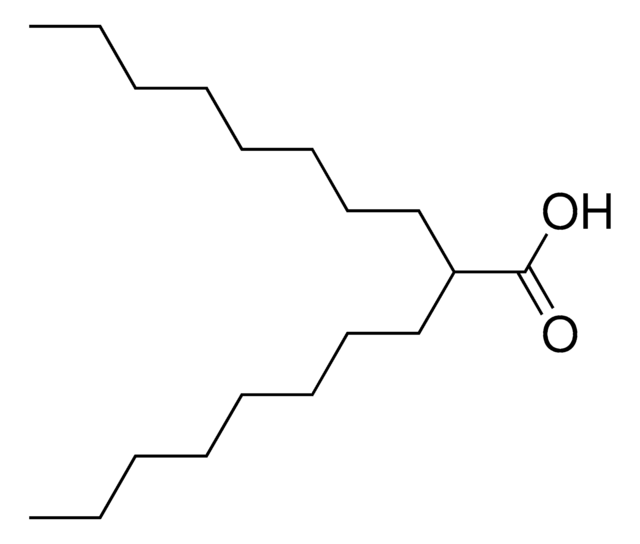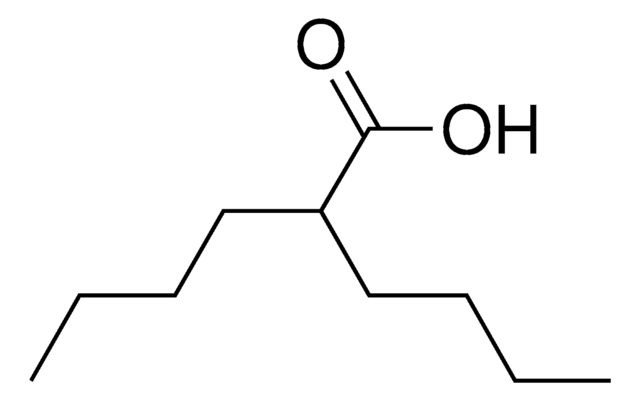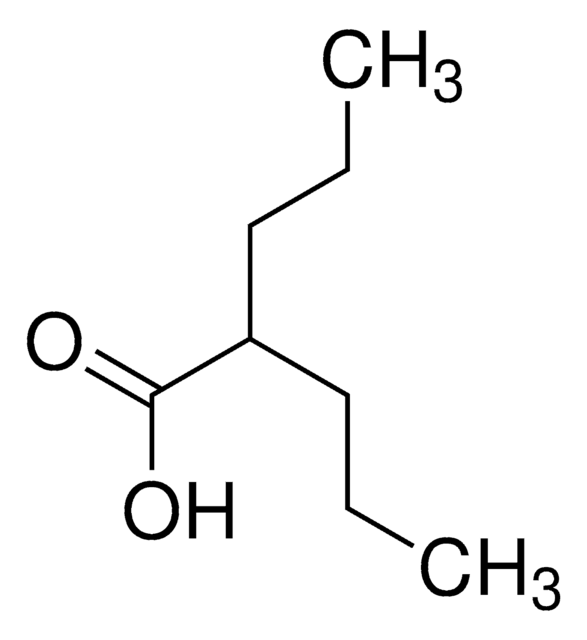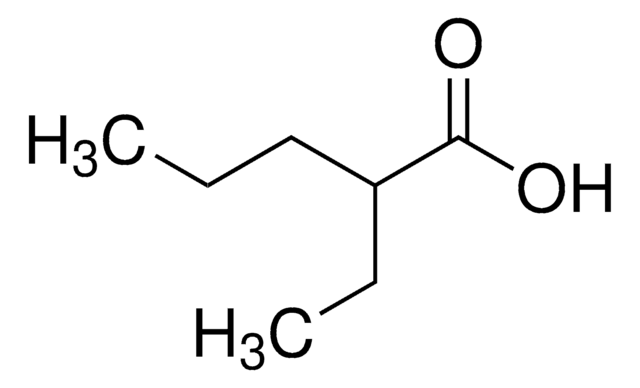SML2896
ONO-2506
≥98% (HPLC)
Sinónimos:
(-)-(2R)-2-Propyloctanoic acid, (2R)-2-Propyloctanoic acid, (R)-(-)-2-Propyloctanoic acid, (R)-2-Propyloctanoic acid, Arundic acid, ONO 2506, ONO2506
About This Item
Productos recomendados
Nivel de calidad
Ensayo
≥98% (HPLC)
Formulario
oil
color
colorless to yellow
temp. de almacenamiento
−20°C
cadena SMILES
OC(=O)[C@@H](CCCCCC)CCC
InChI
1S/C11H22O2/c1-3-5-6-7-9-10(8-4-2)11(12)13/h10H,3-9H2,1-2H3,(H,12,13)/t10-/m1/s1
Clave InChI
YCYMCMYLORLIJX-SNVBAGLBSA-N
Acciones bioquímicas o fisiológicas
Código de clase de almacenamiento
11 - Combustible Solids
Clase de riesgo para el agua (WGK)
WGK 3
Punto de inflamabilidad (°F)
Not applicable
Punto de inflamabilidad (°C)
Not applicable
Elija entre una de las versiones más recientes:
Certificados de análisis (COA)
It looks like we've run into a problem, but you can still download Certificates of Analysis from our Documentos section.
Si necesita más asistencia, póngase en contacto con Atención al cliente
¿Ya tiene este producto?
Encuentre la documentación para los productos que ha comprado recientemente en la Biblioteca de documentos.
Nuestro equipo de científicos tiene experiencia en todas las áreas de investigación: Ciencias de la vida, Ciencia de los materiales, Síntesis química, Cromatografía, Analítica y muchas otras.
Póngase en contacto con el Servicio técnico








